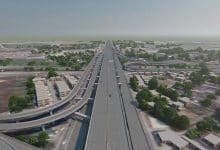Thailand’s 300-baht travel tax takes off with air passengers first

Collection of the 300-baht travel tax could initially target air passengers, with the system needing at least six months to become operational, as stated by the Tourism and Sports Ministry.
Tourism and Sports Minister Sorawong Thienthong announced that the ministry is currently revising the details of the programme and plans to submit it for Cabinet approval in January.
Despite the project’s approval by the previous government led by Prayut Chan-o-cha in February 2023, the new administration requires a fresh consensus following the General Election.
Sorawong indicated that the tax collection might begin with air passengers, though the system will need six months post-Cabinet approval for setup before launching.
Once the system is established, the second phase will extend the tax to overland travel.
The ministry noted that air travellers constitute 70% of foreign arrivals to Thailand.
The transaction system, developed by Krungthai Bank, is ready for implementation. Tourists will be able to make payments via a website or an app currently under development. Sorawong revealed that the payment system will be similar to the one employed in South Korea.
“Payment will resemble South Korea’s K-ETA registration system, where foreign travellers register and pay online before entering the country.”
Following government approval, the ministry will initiate a procurement process to hire software developers and insurance companies to provide insurance policies for foreign tourists.
The insurance premium for tourists is capped at a maximum of 60 baht per person, included in the 300 baht collected.
Insurance will cover 30 days, aligning with the average tourist stay of under one month. Compensation remains consistent with previous Thai tourist policies: 1 million baht in the event of death from an accident and 500,000 baht for injuries.
Sorawong mentioned that the ministry might propose a uniform fee of 300 baht for all ports of entry to avoid discrimination accusations, as the previous government set the land and sea arrival rate at 150 baht.
The ministry’s study found that frequent border crossers for trade would not be affected, as they can use a border pass to be exempt from the levy, reported Bangkok Post.
Latest Thailand News
Follow The Thaiger on Google News:


























